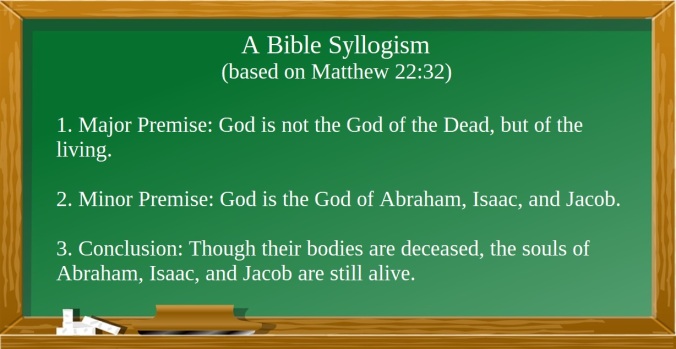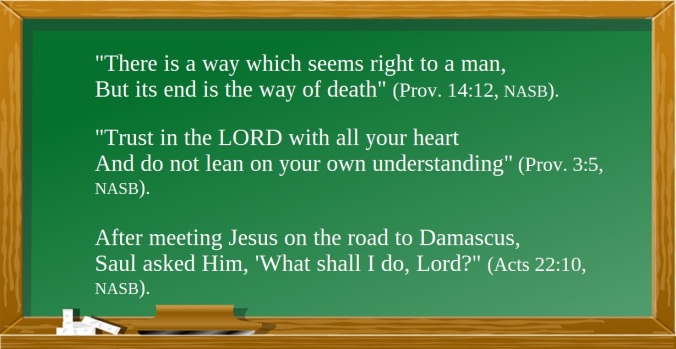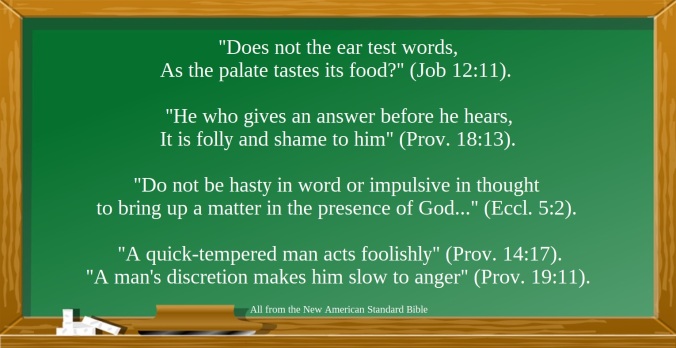“Go therefore and make disciples of all the nations…teaching them to observe all that I commanded you; and lo, I am with you always, even to the end of the age” (Matthew 28:19-20, NASB).
——————–
Contents:
1) Hope Abides (L. A. Stauffer)
2) Logic in the Bible (Terry W. Benton)
3) Selected Sentence Sermons
——————–

-1-
Hope Abides
L.A. Stauffer
“For everything there is a season, and a time for every purpose under heaven” (Eccl 3:1). And now, during earth life, it is man’s season of hope—a time when man looks to but sees not the reward his Maker has promised. “Hope,” Paul writes, “that is seen is not hope: for who hopes for that which he sees” (Rom 8:24). It is “now,” the apostle says, that hope “abides” (1 Cor 13: 13).
Hope only abides when there is the reality of a reward and there is a longing expectation of that reward in the heart of a man. Take away the “mansion” in heaven that Jesus promised or the assurance of that abiding place in a man’s faith—and you no longer have hope (see Heb 11:1). Hope is a reality because of man’s expectant trust and God’s faithful promise. Hope abides because:
God Promised. Hope rests and is founded on God’s promise. He it is who announced through Jesus, “great is your reward in heaven” and “in my Father’s house are many mansions” (Matt 5:12; John 14:1-2). The Hebrews’ writer takes his readers back to the time of Abraham to assure us that hope abides as an anchor of the soul—both “sure” and “steadfast” (Heb 6:13-19). Abraham hoped in God for years that he would receive a seed and become a great nation. The certainty of that hope was secured by the promise of God to which He added an oath. By these two immutable things in which it is impossible for God to lie—His word and His oath—Abraham waited patiently and the promise was fulfilled.
God Is Faithful. God, it is clear, must be true to both Himself and His word. Man’s lack of faith does not affect the faithfulness of God to His promise. Though every man be found a liar, Paul argues in a text highlighting the sinfulness of man, “let God be found true” (Rom 3:3-4). In the entirety of the oracles of God from the promise of a redeemer to the promises to Abraham and to Israel—God has shown man that He “will in no wise fail” him and “will in no wise forsake” him (see Heb 13:5). Hope prevails because Jehovah, the God who promised, is trustworthy.
Man Believes. Yet despite the promises, faithfulness, and blessings from God, hope abides only in a man who by faith holds in his heart the “assurance of things hoped for” and the “conviction of things not seen” (Heb 11:1). Moses when he decided to leave Pharaoh’s house was by faith convicted “of things not seen” and “looked unto the recompense of reward” (Heb 11:26). It was the faith he embraced in his heart that housed the expectation of a reward from God. It was no different with Abraham who “in hope believed against hope,” looked “unto the promise of God,” and “wavered not through unbelief, but waxed strong in faith” (Rom 4:18-21).
These men of old are examples for God’s believing servants today. Jesus opened the way into heaven through the veil of His flesh when He entered the “most holy” place in heaven to appear before the face of God on behalf of believers in Christ (see Heb 9:23-26; 10:19-20). We, because of God’s promise and His faithfulness, have confidence in that unseen reward—in that abiding hope that anchors our souls, binds us to purity, moves us to fruitfulness, and upholds us in affliction (see Heb 6:18-19, 1 John 3:3; Col 1:5-7; Heb 11:24-27). There is victory in Jesus for men of faith and unmovable steadfastness (1 Cor 15:50-58).
— Via Articles from the Kirkwood church of Christ (Kirkwood, Missouri), July 10, 2017
——————–

-2-
Logic in the Bible
Terry W. Benton
While some modern brethren have declared that the logic of “necessary inference” has been made up in recent years by “church of Christ preachers,” the Bible shows that this kind of logic goes back to communication from God and man from the beginning. If anyone should be credited with the origin of such logic, it should be God. The failure to use logic goes to the devil and his followers.
A clear example of reasoning from evidence to “necessary inference” is seen clearly in Hebrews 7. Paul reasoned that:
1. Melchizedek was greater than Abraham.
2. Levi is not as great as Abraham and certainly not as great as Melchizedek.
3. If the Levitical priesthood and Law of Moses had been sufficient, there would have been no need for David to prophesy about another priest who would be a forever priest after the order of Melchizedek in Psalm 110, at a time when the Law and Levitical priesthood was in operation.
Then the writer then argues to the logical conclusion that was “of necessity” (a necessary inference). He pointed to a great logical deduction: In order for Jesus to be a legitimate priest, the law would have to be changed (Hebrews 7:12). That was an inescapable conclusion since Jesus was not from the tribe of Levi. In order to change the priesthood there would have to logically be a “change also of the Law.” Statements of prophecy plus the example of Abraham paying tithes to Melchizedek formed the evidence from which several necessary inferences were drawn.
Another point of logic was made on the basis that Jesus was from the tribe of Judah “of which Moses spoke nothing concerning priesthood.” When the Law spoke about priesthood and designated the tribe of Levi, it did not have to start a list of “thou shalt not get priests from Judah” and “thou shalt not get priests from Gad,” etc. Silence about other tribes meant only that permission was not granted to other tribes to become priests. There is a logical rule that silence is not authority to act. Jesus was not authorized to be a priest on earth because silence about priests from Judah is not authority for priests from Judah.
The authority of Jesus to be a priest after a different order comes only with a “change of Law” and a verification that Jesus has the credentials of a “forever” priesthood according to the order of Melchizedek. The use of example and statements to bring about the logical necessary inference is what GOD has taught us. It did not originate with so-called “church of Christ preachers.” In fact, failure to properly employ and use these things is a clear indication that the critic does not know the scriptures.
— Via Articles from the La Vista church of Christ (Omaha, Nebraska)
——————–
Isaiah 1:18
“Come now, and let us reason together,”
Says the LORD,
“Though your sins are as scarlet,
They will be as white as snow;
Though they are red like crimson,
They will be like wool” (NASB).
——————–
-3-
Selected Sentence Sermons
Guilt is concerned with the past. Worry is concerned about the future. Contentment enjoys the present.
The right train of thought can take you to a better station in life.
When you meet temptation, turn to the Right.
——————–
The Steps That Lead to Eternal Salvation
1) Hear the gospel, for that is how faith comes (Rom. 10:17; John 20:30-31).
2) Believe in the deity of Christ (John 8:24; John 3:18).
3) Repent of sins (Luke 13:5; Acts 17:30).
4) Confess faith in Christ (Rom. 10:9-10; Acts 8:36-38).
5) Be baptized in water for the remission of sins (Mark 16:16; Acts 2:38; 22:16; Rom. 6:3-4; Gal. 3:26-27; 1 Pet. 3:21).
6) Continue in the faith, living for the Lord; for, if not, salvation can be lost (Heb. 10:36-39; Rev. 2:10; 2 Pet. 2:20-22).
——————–
Tebeau Street
CHURCH OF CHRIST
1402 Tebeau Street, Waycross, GA 31501
Sunday services: 9:00 a.m. (Bible class); 10 a.m. & 5 p.m. (worship)
Wednesday: 7 p.m. (Bible class)
evangelist/editor: Tom Edwards (912) 281-9917
Tom@ThomasTEdwards.com
http://thomastedwards.com/go (Older version of Gospel Observer website without pictures, but back to March 1990)
http://tebeaustreetchurchofchrist.org/
http://ThomasTEdwards.com/audioser.html (audio sermons)


















